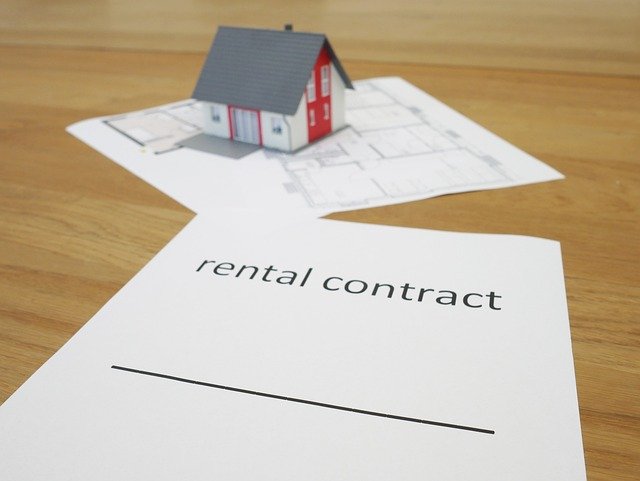Shared building services: accountability and cost-sharing for residents
Shared building services shape everyday living in multi-unit developments. Clear accountability, transparent cost-sharing and predictable service levels help residents manage utilities, maintenance and communal amenities while supporting harmonious community living and budgeting.

Shared building services — from lobby cleaning to central cooling — affect how residents experience housing and how operating costs are divided. Clear rules about responsibility and equitable cost-sharing reduce disputes between owners, tenants and management. This article explains how shared services are typically governed, what residents should expect when renting or signing a lease, and practical steps for budgeting and legal clarity.
How do housing, renting and lease terms affect shared services?
Lease agreements and homeowners’ regulations set the baseline for who pays for what. In many buildings the lease will state which utilities and communal services are included in rent and which are billed separately. For housing units under freehold ownership, service charges and community fees are often passed to owners via the building management or owners’ association. Renters should review the lease for clauses on utilities, maintenance response times and any shared cost apportionment to avoid surprises.
How do commute, transit and neighborhood influence shared amenities?
Location affects both the types of shared services offered and residents’ expectations. Buildings in transit-connected neighborhoods may prioritize secure bike storage, commuter lounges or shuttle coordination, while properties farther from transit focus on parking and ride-share coordination. These neighborhood and connectivity factors can influence what services are necessary, and consequently how costs are allocated among residents. Consider commute needs and local transit when comparing housing options.
Who is responsible for utilities, maintenance and energy consumption?
Responsibility divides into individual and communal lines. Individual meters usually make residents responsible for their own electricity, water and internet. Shared systems—like central HVAC (district cooling), lighting in common areas, elevators and landscaping—are managed by building management and funded through service charges. Maintenance contracts may cover routine cleaning, preventive upkeep and emergency repairs. Understanding meter setups, billing cycles and energy-efficiency measures helps residents anticipate utility and energy costs.
What should expat residents know about connectivity and furnishing impacts?
Expat residents often balance short-term renting with the desire for comfortable furnishing and connectivity. Furnishing choices and added personal services (internet packages, furniture rentals) are usually billed separately from building service charges. Connectivity—broadband, smart-home infrastructure and building-wide Wi‑Fi—may be negotiated by the management as a shared amenity or left to individual subscriptions. Expats should clarify who arranges and pays for installation, ongoing subscriptions and whether any shared plans are included in rent or billed through service fees.
How can budgeting and legal arrangements clarify cost-sharing?
Transparent budgeting begins with clear legal documents: the lease, homeowners’ association bylaws or the building’s master service agreement. These documents typically define maintenance responsibilities, reserve fund contributions and the formula for apportioning common-area costs (per square metre, per unit, or flat fee). Residents should request recent service-charge statements and the maintenance schedule before committing to a lease or purchase. Legal clarity helps when disputes arise over workmanship, delayed repairs or perceived unequal cost distribution.
Pricing and provider comparisons for shared building services
Real-world costs depend on building size, service level and local providers. Typical cost drivers include district cooling, electricity and water, contracted facilities management, security and concierge services. Below is a comparison of commonly used providers for building-level services in the region with general cost estimations to illustrate how charges may be structured.
| Product/Service | Provider | Cost Estimation |
|---|---|---|
| Electricity & Water billing/utility supply | DEWA | Approx. AED 200–1,200/month depending on unit size and usage |
| District cooling (central AC) | Empower | Approx. AED 300–1,500/month depending on contracted capacity and consumption |
| Facilities management (cleaning, routine maintenance) | Imdaad | Approx. AED 5–20 per sqm/year for common-area services, varies by scope |
| Property management and community services | Emaar Property Management | Service charges vary widely; typical ranges AED 3–20 per sqft/year based on amenities |
| Security and concierge services | G4S UAE | Contract-based; approximate AED 3,000–10,000/month for staffed security per building depending on scale |
Prices, rates, or cost estimates mentioned in this article are based on the latest available information but may change over time. Independent research is advised before making financial decisions.
Conclusion Accountability for shared building services relies on clear documentation, consistent billing practices and responsive management. Whether you are renting, leasing or buying, review lease terms and service-charge statements, understand how utilities and energy are measured, and confirm who is responsible for maintenance. With transparent arrangements and realistic budgeting, residents can reduce conflicts and ensure fair cost-sharing across the community.





